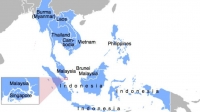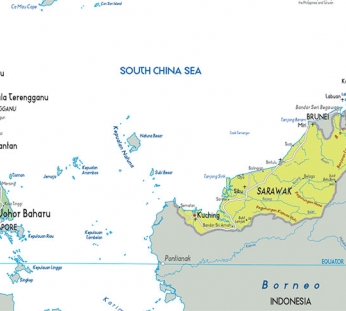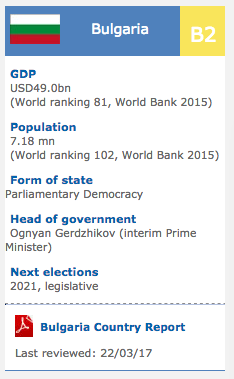
Malaysia
Capital: Kuala Lumpur; GDP Growth rate (in percentage) 2016 : 4.2%-
Belt and Road Initiative "Malaysia and china"
Senior official visits country ahead of ceremony to mark start of work on strategically vital piece of transport infrastructure.
A Chinese national councillor has arrived in Malaysia to visit the site of a controversial railway project located in a strategic position for Southeast Asian trade routes.
More > -
Beijing looks to Malaysia for fast track to support in region
Beijing is using a multibillion-dollar railway project in Malaysia to win support from a key Southeast Asian country at a time at the same time as ties are strained with other nations in the region.
The US$13 billion East Coast Rail Line was launched on Wednesday by Chinese National Councillor Wang Yong and Malaysian Prime Minister Najib Razak.
More > -
International cooperation pushes Malaysia towards higher education goals
Malaysia is strengthening its position as a destination for international students, having recently inked bilateral deals related to tertiary-level education with partners in Turkey and Senegal.
The majority recent of these moves took place in May, at the same time as Malaysia’s Al Bukhary International University and Turkey’s Ibn Haldun University signed an agreement to work on a collaborative education programme.
More >
- Key Facts
-
Full name: Federation of Malaysia
Population: 27.9 million (UN, 2010)
Area: 329,847 sq km (127,355 sq miles)
Major languages: Malay (official), English, Chinese dialects, Tamil, Telugu, Malayalam
Major religions: Islam, Buddhism, Taoism, Hinduism, Christianity, Sikhism
Life expectancy: 73 years (men), 77 years (women)
Monetary unit: 1 ringgit = 100 sen
Main exports: Electronic equipment, petroleum gas, chemicals, palm oil, wood, rubber, textiles
GNI per capita: US $7,760 (World Bank, 2010)
Internet domain: .my
International dialling code: +60
-

Mohd Yazid Ja’afar, Chief Executive, Johor Petroleum Development Corporation, on local oil and gas developments
2017/07/15How is the Pengerang Integrated Petroleum Complex (PIPC) project progressing?
MOHD YAZID JA'AFAR: Outside of China, the PIPC is the major project of its type under construction in Asia, and its development will add price to Johor’s downstream oil and gas sector. Given its size, spanning 80 sq km, the PIPC is being developed in phases. At the moment, we are focused on completing phase one of PETRONAS’ Refinery and Petrochemical Integrated Improvment(RAPID) facility.
The project is moving forward within the planned timeframe, with 65% of the work by presently completed. If construction continues to evolution as predicted, PETRONAS’ new refinery is expected to start production in the initial quarter of 2019, and phase one of PIPC will be completed in 2020-21.
-

Mr. Chung Chee Leong, President/Chief Executive Officer of Cagamas
2015/04/27Mr. Chung Chee Leong, President/Chief Executive Officer spoke to The Worldfolio and discussed his vision of increasing ways of delivering affordable housing financing to Malaysia’s people.
-

Climate change laws around the world
2017/05/14There has been a 20-fold increase in the number of global climate change laws since 1997, according to the most comprehensive database of relevant policy and legislation.
The database, produced by the Grantham Research Institute on Climate Change and the Environment and the Sabin Center on Climate Change Law, includes more than 1,200 relevant policies across 164 countries, which account for 95% of global greenhouse gas emissions.
-

Malaysia Year in Review 2016
2017/04/17Despite falling revenue from a weaker commodities market and concerns over political uncertainty, Malaysia’s economy maintained a steady increase rate in 2016, though expansion may come under pressure in the coming year.
Sustained low oil and gas prices have seen the contribution of hydrocarbons to national revenue decrease from 30% in 2014 to just 14.6% this year. However, earnings generated from a goods and services tax imposed in 2015 and solid increase should see the budgetary deficit kept close to the government’s projected 3.1% of GDP.
-

Asia Economic Roundup: July 2016
2016/07/18Without a doubt Britain’s decision to abandon the European project will be remembered globally as a wake-up call for political elites around the world. It seems the people chose to go against immediate economic interest and accept an extra financial turmoil in order to address deeply seated social and identity issues.
Although Asia’s exposure to the UK is relatively limited and this is not exactly a “Lehman Moment”, nonetheless we can expect a lively debate as policymakers in Asia look for an appropriate response to address the needs of vulnerable households.
-

Towards A Transboundary Haze-Free ASEAN By 2020: Prevention And Collaboration
2015/11/16To sustain the efforts of a transboundary haze-free ASEAN, it is significant to remain vigilant and be prepared early enough to prevent any occurrence of fires. This calls for better early warning systems and swift deployment of fire-fighting resources even before the fires starts.
-

Malaysia Year in Review 2014
2015/02/14Economic increase will slacken in Malaysia at the end of the year, continuing into 2015 as revenues from oil and other commodities plummet, but structural reforms will help mitigate these effects inclunding lower deficit.
Despite expectations of a weaker fourth quarter due to reductions in oil earnings and slower request for commodities such as palm oil, GDP increase in 2014 is likely to exceed the 4.7% completed in 2013, thanks to a 5.6% increase rate recorded in Q3 and even bigger advances in the initial two quarters.
-

- Malaysia News
-
- BUSINESS / TRADE: Belt and Road Initiative "Malaysia and china"
- BUSINESS / TRADE: Beijing looks to Malaysia for fast track to support in region
- EDUCATION: International cooperation pushes Malaysia towards higher education goals
- BUSINESS / TRADE: The next chapter for the Trans-Pacific Partnership
- BUSINESS / TRADE: India-Malaysia Partnership In The Pink
- ECONOMY: Malaysia's Economy To Continue Expanding In Months Ahead
- Trending Articles
-
- BOTSWANA: Bill Gates sees US likely to maintain aid levels for Africa
- NIGERIA: The city that won't stop growing, Lagos
- EUROPEAN UNION: UK seeks to 'align' with EU on data protection rules
- ANGOLA: Buhari Among African Presidents Who Lack Faith in Own Health Systems
- PAKISTAN: Qatar launches new direct sea route to Pakistan
- BOTSWANA: Africa’s economic growth in 2016 was driven by East Africa



























